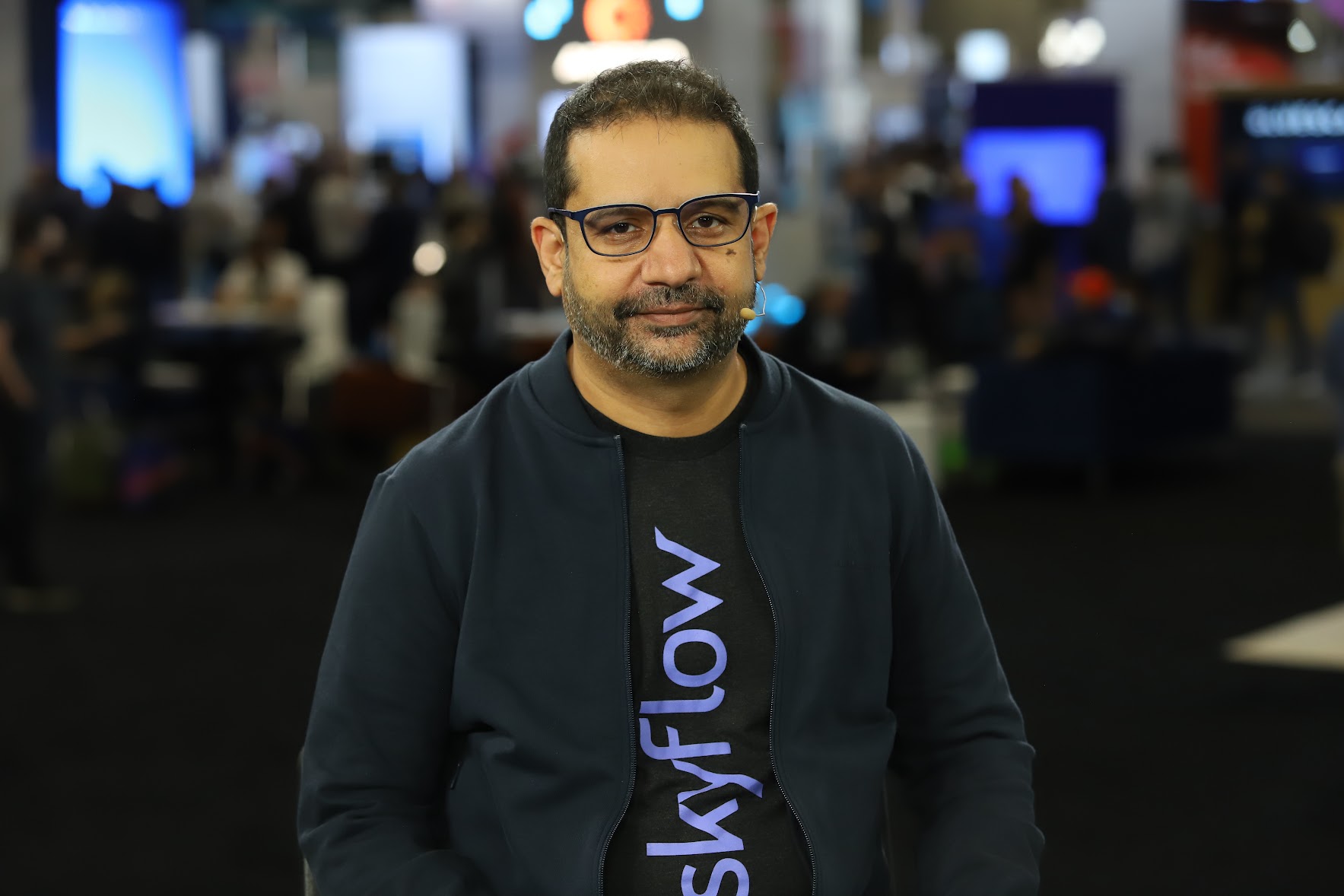 BIG DATA
BIG DATA
 BIG DATA
BIG DATA
 BIG DATA
BIG DATA
Enhancing personally identifiable information (or PII) privacy is no longer an afterthought; it’s a fundamental component in an enterprise, just like data security and backup. Therefore, isolating PII is not a choice; it’s necessary for optimal security.
Whether it’s a new brokerage application or the largest bank in the world, all companies need a PII wall in the service-oriented architecture that secludes private information, including Social Security Number, credit card number, email, ID and date of birth, to avert a Robinhood-like data breach, according to Anshu Sharma (pictured), co-founder and chief executive officer of Skyflow Inc.
“So we think if you isolate the PII, every leading company is going to end up with a PII wall as part of their core architecture,” he explained. “Just like today you have an alt API, a search API, and a logging API, you’re going to have a PII API. And that’s going to be part of your modern data stack.”
Sharma spoke with Dave Vellante and David Nicholson, co-hosts of theCUBE, SiliconANGLE Media’s livestreaming studio, during AWS re:Invent. They discussed how Skyflow utilizes polymorphic data encryption in enhancing PII privacy and security. (* Disclosure below.)
Although the holy grail of encryption is fully homomorphic encryption, Sharma believes that this scheme is a million times slower. Therefore, this necessitated the urge for specialized encryption schemes called polymorphic data encryption.
“Just like the Snowflake guys had to start with the foundation of storage, rethink indexing, and build Snowflake, we did the same thing, except we built it for encrypted indexes, whereas they built it for regular data stores,” Sharma stated.
Created in 2019, Skyflow uses format-preserving encryption when isolating PII from databases.
“So I can tell you what’s the balance of your customer’s account balance,” Sharma pointed out. “And I can run that query without decrypting a single row of data.”
Having recently raised $45 million, Skyflow intends to expand its efforts to offering a full-stacked service that runs on AWS and other clouds, which takes a plug-and-play approach, according to Sharma.
“You basically instantiate Skyflow of what gets created. It can be in your AWS environment or dedicated VPC. So it’s private to you. You have a handle, and then basically you just start using it,” he concluded.
Watch the complete video interview below, and be sure to check out more of SiliconANGLE and theCUBE’s coverage of AWS re:Invent. (* Disclosure: Skyflow Inc. sponsored this segment of theCUBE. Neither Skyflow nor other sponsors have editorial control over content on theCUBE or SiliconANGLE.)
Support our open free content by sharing and engaging with our content and community.
Where Technology Leaders Connect, Share Intelligence & Create Opportunities
SiliconANGLE Media is a recognized leader in digital media innovation serving innovative audiences and brands, bringing together cutting-edge technology, influential content, strategic insights and real-time audience engagement. As the parent company of SiliconANGLE, theCUBE Network, theCUBE Research, CUBE365, theCUBE AI and theCUBE SuperStudios — such as those established in Silicon Valley and the New York Stock Exchange (NYSE) — SiliconANGLE Media operates at the intersection of media, technology, and AI. .
Founded by tech visionaries John Furrier and Dave Vellante, SiliconANGLE Media has built a powerful ecosystem of industry-leading digital media brands, with a reach of 15+ million elite tech professionals. The company’s new, proprietary theCUBE AI Video cloud is breaking ground in audience interaction, leveraging theCUBEai.com neural network to help technology companies make data-driven decisions and stay at the forefront of industry conversations.